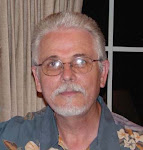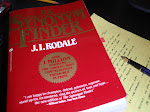I’ve always considered myself an Imagist poet. You’ve probably heard about the movement that started with the noted poet Ezra Pound.
I’m certainly not saying I’m in his rank, but I do believe in plain speaking and striving to use only the exact words that contribute to the poem.
You’ve seen poems that fill pages leading you on and on without relief, and when you’re finished you need to read it over to remember how it started. You’ve also see masterpieces that touched your heart, told a wonderful story, and didn’t go over 30 lines.
And what about the beautiful simplicity of haiku and tanka? (We’ll talk about them another day)
You can tell when a Thesaurus Junkie has been at work, and you know if they had just taken a few minutes to step back and look at what words were really needed, the poem would have been truly memorable.
Here’s what I do. I finish a draft poem, get it from the pen on paper stage to the first draft on the computer, then print it out and hide it in a file I won’t touch for a week or so. After a week, or at least a few days if I just can’t stand the suspense, I take it out and read it over. Many times I walk out on the porch and read it to the birds and bears, and where I stumble in my reading I mark that, and where a word just doesn’t work, I mark that, make a draft number two, then hide it away again. If the critique group is going to meet I’ll take it there, and if not I’ll e-mail a friend to meet me at the coffee shop for sharing. Don’t read it to the dog or cat. You just can’t trust their comments.
You’ll get your own process going, and if you are alone and need some comments, I’m always here on the porch.
Have a wonderful day, and keep writing. How about a poem about the local bears.
The Meeting
The bears know the ancient ways
of hierarchy. The ways taught
to them by their fathers and fathers
back to the beginning of their tribe.
They remember when they were the rulers.
When all others bowed as they hunted
silently through the woodland.
Then we came and pushed them further
into the forest, further into the shadows
with our stone and steel hands.
When he comes near I call him brother
speaking the ancient language between us.
He knows his tribe will never rule again,
and he will not face me, will not stand
as he draws near - turns his eyes away.
And I am ashamed.
Subscribe to:
Post Comments (Atom)







Great poet, Robert. Keep posting them on your blog.
ReplyDelete